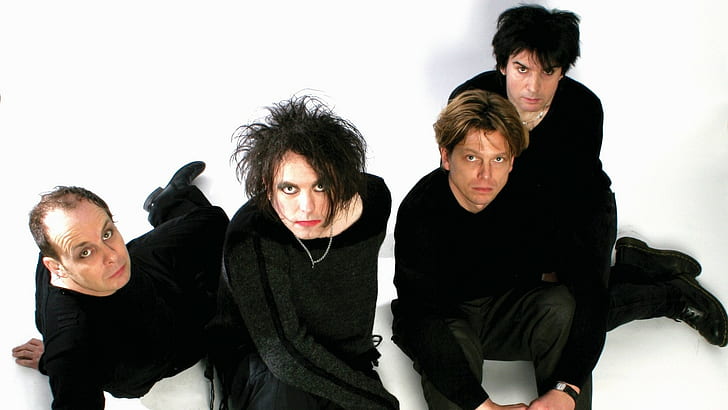The Cure Albums Ranked
The Cure is an English pop-rock band formed in Crawley, West Sussex, in 1978. The band members have changed several times, with guitarist, lead vocalist, and songwriter Robert Smith the only constant member. The band’s debut album was Three Imaginary Boys (1979) and this, along with several early singles, placed the band in the post-punk and new wave movements that had sprung up in the wake of the punk rock revolution in the United Kingdom. Beginning with their second album, Seventeen Seconds (1980), the band adopted a new, increasingly dark and tormented style, which, together with Smith’s stage look, had a strong influence on the emerging genre of gothic rock as well as the subculture that eventually formed around the genre. Following the release of the album Pornography in 1982, the band’s future was uncertain. Smith was keen to move past the gloomy reputation his band had acquired, introducing a greater pop sensibility into the band’s music. Songs such as “Let’s Go to Bed” (1982), “Close To Me” (1985), “Just Like Heaven” (1987), “Lovesong” (1989), and “Friday I’m in Love” (1992) aided the band in receiving commercial popularity. The band has released 13 studio albums, two EPs, and over 30 singles to date. Here are all The Cure albums ranked.
Don’t miss out the music of the English pop rock band. Click below and listen their famous songs.
10. Mixed Up (1990)
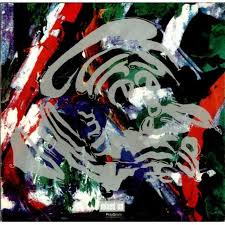
“Great mixes of wonderful Cure songs. I was amazed at the technical advances in sound building that made these songs so excellent. My favorite album.”
9. The Top (1984)
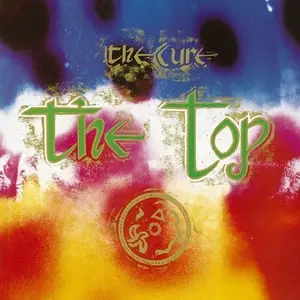
“This brilliant album is as colorful as its cover. It’s a fascinating window into the darkly distorted state of mind that Robert Smith (the Cure’s mastermind) was regularly experiencing at the time, thanks to high drug intake and an exhausting schedule recording with the Banshees during the day while working on THE TOP at night. Some of his best music and most tripped-out lyrics are featured here.”
8. Bloodflowers (2000)
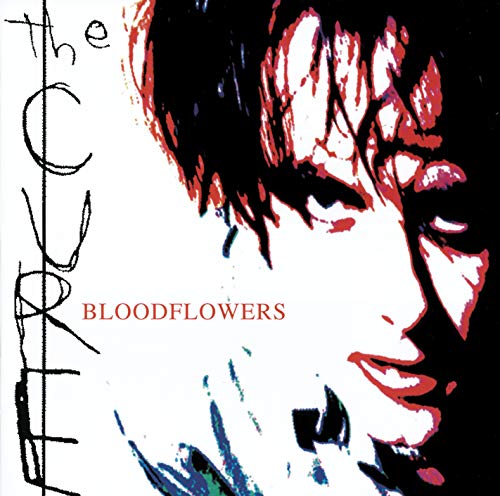
“Musically, “Bloodflowers” almost seems to form a trilogy with the magnificently conceived “Disintegration” and “Wish” albums. The haunting guitar solos, sprouting like vines through multi-layered soundscapes (try the hypnotic title track, as well as “39”), and which I missed so sorely on “Wild Mood Swings,” are back, but there are also a few more straightforward, “narrative” songs like “There is no if…” and “The Loudest Sound.”
7. Three Imaginary Boys (1979)
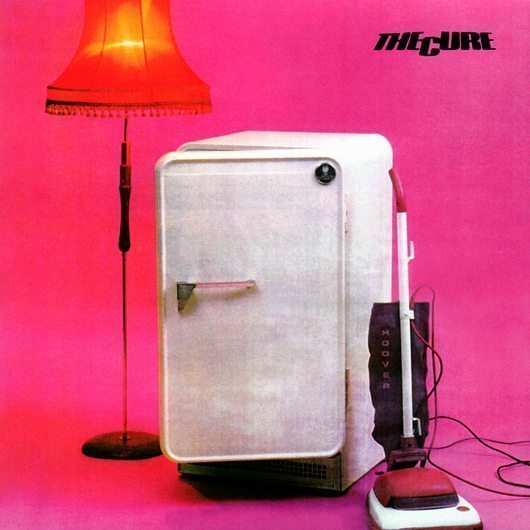
“The Cure’s excellent debut album is a much more garage band, spidery affair that the more expansive sonic groove that they would arrive at with the likes of ‘A Forest’. The sparse sound and un-finessed production now sounds quite charmingly austere, and Robert Smith’s unrefined voice radiates a kind of British New Wave spirit. They would make much more accomplished, diverse and richer sounding albums, but as a debut, it ranks alongside Echo & The Bunnymen’s ‘Crocodiles’, Teardrop Explodes ‘Kilimanjaro’ and Joy Division’s ‘Unknown Pleasures’ as the best of British Post-Punk debut albums. I bought a vinyl reissue copy, but was disappointed with the rather crackly pressing quality.”
6. Seventeen Seconds (1980)
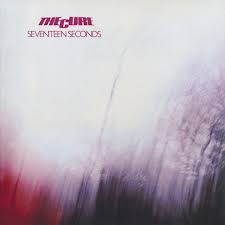
“A minimalist masterpiece, Seventeen Seconds blurs the boundry between rock and art. Although it reflects Smith’s “I’m arty” attitude of the time, with the blurred cover and oddball pieces like “The Final Sound”, the band puts up, it doesn’t shut up, to use an apt cliché. This record is the first in a sort of trilogy of magnificent art-rock records that becomes darker and more angry as it evolves. Faith and Pornography, the two others in this trilogy, are equally brilliant, and represent the Cure at its finest.”
See more: The Police Albums Ranked
5. Wish (1992)
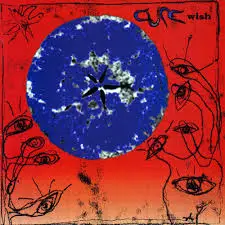
“This is probably The Cure’s best selling album to date, and deservedly so. While those who remember The Cure when they were a relatively obscure band with a small but loyal following in the United States may find this album’s popularity annoying, the artistry here is something not much seen in previous albums. The music is classic Cure, not breaking any new ground, with driving rhythms and jangling guitar. I guess it is the lyrics that set this album apart. This is an extremely personal album for Robert Smith. He goes beyond the typical melancholy of his usual songs and reaches to depths that produce pure heartbreak. With “Open” he discusses his drinking problem, and “Apart” and “A Letter to Elise” appear to chronicle a failed marriage. And while “Elise” and “Friday I’m In Love” received a lot of airplay (“Friday” I think even cracked the Top 40, a rarity for The Cure), the most underrated song on the album is “Doing the Unstuck”. Getting past the goofy name, it is a perfect rendering of those emotions one feels when your life seems to be going to hell and all you wish for is that one perfect day with someone you love to forget all your troubles. “
4. Head On The Door (1985)
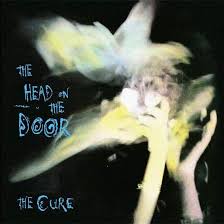
“A breakthrough record for The Cure. In fact this is one of their most important records because it introduced so many people to them, they really gained a lot of new fans with this one. The vinyl sounds great and is simple but clean packaging. It’s one of my favorites from the band, it’s just a really nice collection of songs that vary greatly in style. Highlights for me are Push, A Night Like This, and Sinking. These are some of my favorite Cure songs period.”
3. Faith (1981)
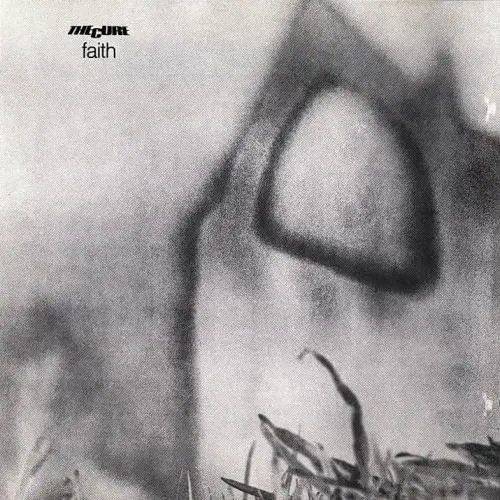
“My favorite Cure album. They were all in top form for this release. Rather melancholy, but is IS the Cure . . . It is doubtful that they shall ever issue anything as good as this again. Get it.”
2. Kiss Me, Kiss Me, Kiss Me (1987)
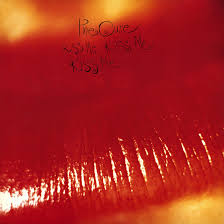
“Kiss Me Kiss Me Kiss Me is the album where everything comes together for the Cure. The songwriting takes a step forward, one that was foreshadowed in The Head On The Door, but the formula that was being developed 2 years earlier is now perfected. One could just focus on the hits, but this album finds strength in variety. This is a very strong (and large) list of songs, with barely a weak one in the bunch. Smith has assembled a very good group of musicians, and writes parts that showcases each of their instruments very well. Smith’s guitar work is muscular throughout, while happily avoiding the guitar cliches that were so common in the ’80s. Here, Smith is shown to potentially be a vastly underrated guitarist, focusing less on showy soloist excursions and more on creating substantial parts with depth that add layers to the song that can, at times, surprise the casual listener. The same goes for bassist Simon Gallup, whose bass work really forms the heart of these songs. Drummer Boris Williams also shines throughout, putting together some truly creative drum work.”
1. Disintegration (1989)
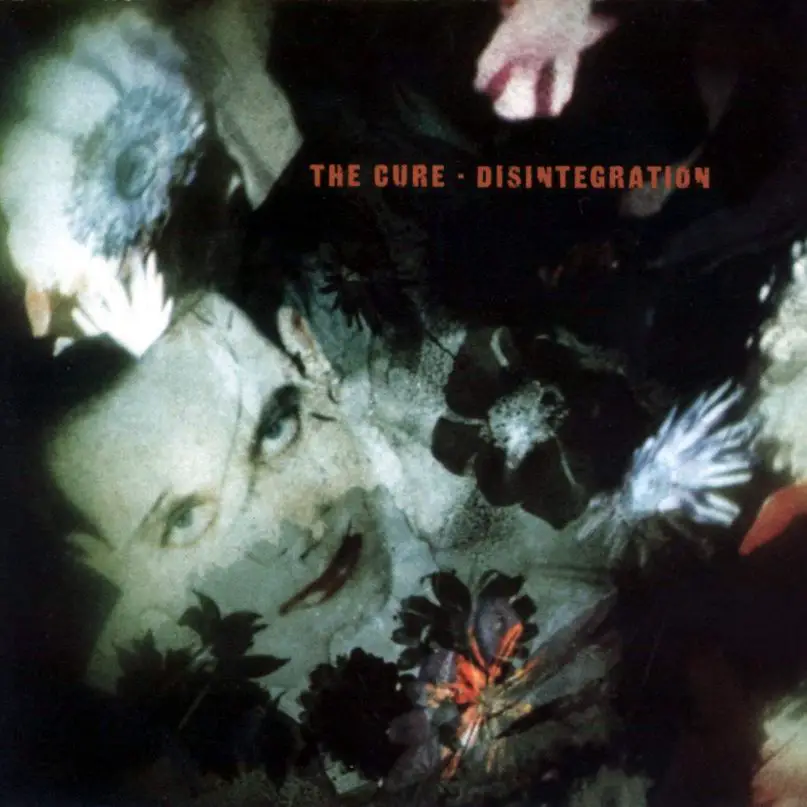
“With a reputation as purveyors of gloomy introspection, this – the Cure’s eighth studio album – has often been seen as their defining statement. After all, there is plenty of doom and gloom on display to satisfy the most ardent Goth but that would be only telling half the story, for there are moments of beauty, tenderness and passion also. Released in May 1989, the album became one of their most successful, reaching #3 in the UK charts and builds on the formula of their previous release, ‘Kiss Me, Kiss Me, Kiss Me,’ with long intros of magnificent, spiralling sound that pulls you into their dark, Gothic dreamscapes of obsessive love and despair but does it deserve to be recognised as their greatest album? I think it does…”

